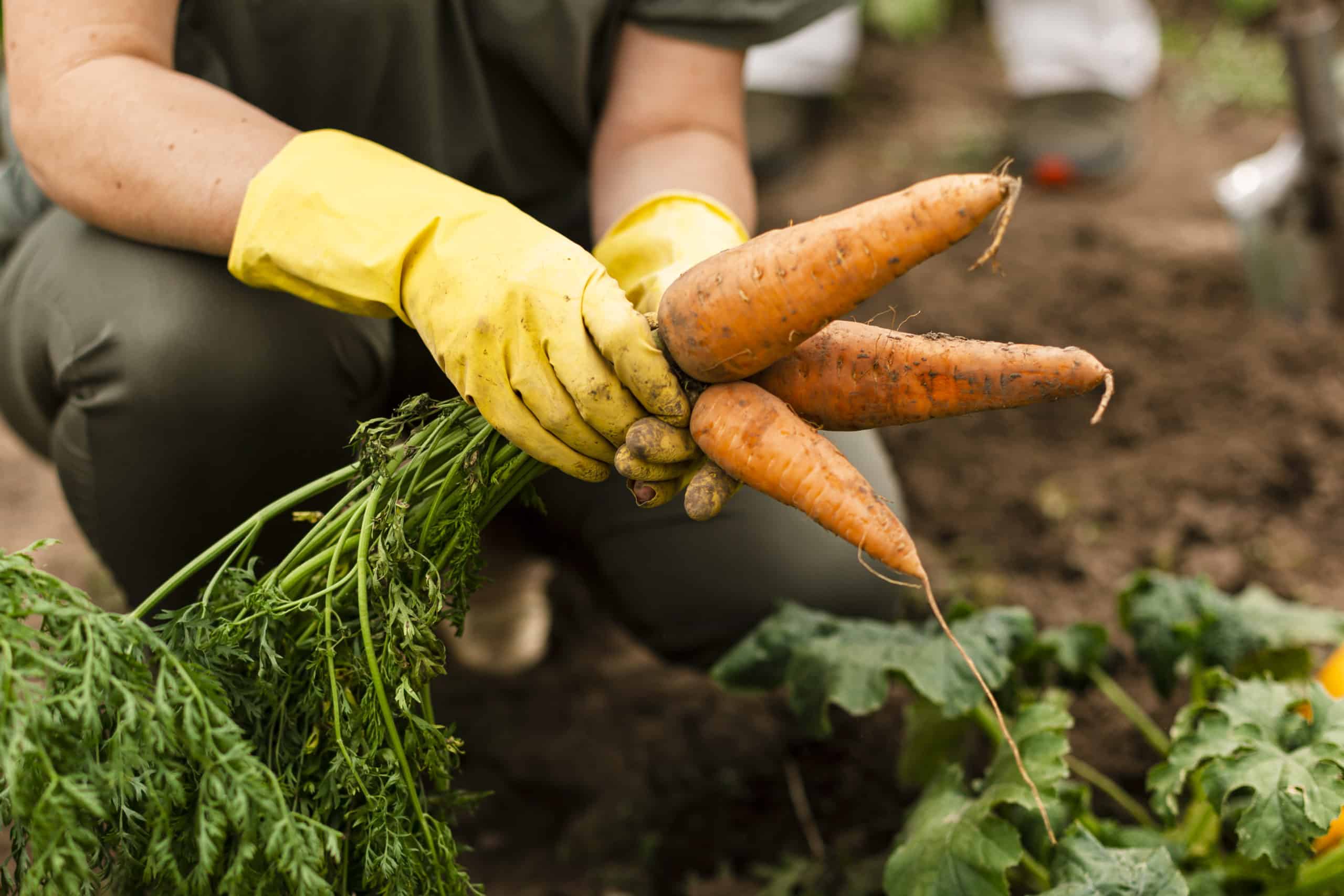
Our ability to transport foods across the country (and the world) is exceptional. As a result, we consumers have grown to expect produce year-round that was once only available seasonally, along with foods that cross cultures, and tremendous access to high quality, fresh foods. Today’s supermarkets are doing such a great job that it’s easy to forget just how much goes into ensuring those foods are on store shelves and filling fresh departments. However, the supply chain that brings food to shelves so that it can eventually make it to your home kitchen is a network of devoted people who are the lifeline of this country. Let’s take a moment to highlight everyone from the farm workers to grocery store stockers and the home cook too, who take on the challenge of maintaining a safe food supply and nourishing our homes and communities.
At the Farm
Despite shifting climate conditions, global and political factors, and more, our farmers work long, tiring days. While today’s farmed foods can easily travel across the country, it’s our regional, smaller farms that are an important part of our community and local economy. Today’s farms, big and small, are on the front lines of preserving our land and many farmers are engaged in sustainable practices that we all benefit from. If you have never visited a small, local farm to learn their story, I recommend taking time to do so.
On the Highway
Fresh food transport in the US is a careful, calculated business that ensures products retain their quality and make it to market quickly and efficiently. Of course, not all our food comes directly from the farm. Boxed, canned, and other packaged foods are moved from manufacturing plant to warehouse to store in a well-orchestrated sequence of events that enables supermarket associates to tell consumers with confidence that the “truck is coming today.” This simple phrase that we’ve come to be familiar with wouldn’t be possible without this transportation network.
At the Store
This brings us to the supermarket. For most of us, our neighborhood market is a site of familiar faces, a nearly memorized shopping route, and most of all, a trusted source that’s there for the day-to-day, the big celebrations, and as we know so well now, much more than that too. If you’ve never had a job that required you to be in public all the time then you can’t quite capture what it’s like to work in a supermarket and assist (with a smile!) hundreds of people a day. If it weren’t for our supermarket associates then all the efforts of the farmer, the transportation network and delivery men and women would be for not. They are the key to bringing it all together.
It’s also important to mention the role our supermarkets play in maintaining the health and wellness of our communities. Initiatives like hiring retail dietitians to offer complementary in-store services and partnering with Guiding Stars, who works with private and national brands to increase the number of healthful products on the supermarket shelves, ensure that ultimately your kitchen is complete with the foods you need to meet your nutrition goals.
Your Home Chef
At last we have the home chef. I’ve highlighted before that the plan/shop/cook process the home cook is seemingly constantly engaged in can be tiring. The home cook should be celebrated not just for nourishing their family, but for being the person that drives our food economy. After all, if there was no one to buy the food then the farmer wouldn’t be able to command a good price, there would be less to haul and stock on supermarket shelves and ultimately an overall negative impact on the food industry. Cheers to the home cook who supports our food economy with nourishing meals for themselves and their family.